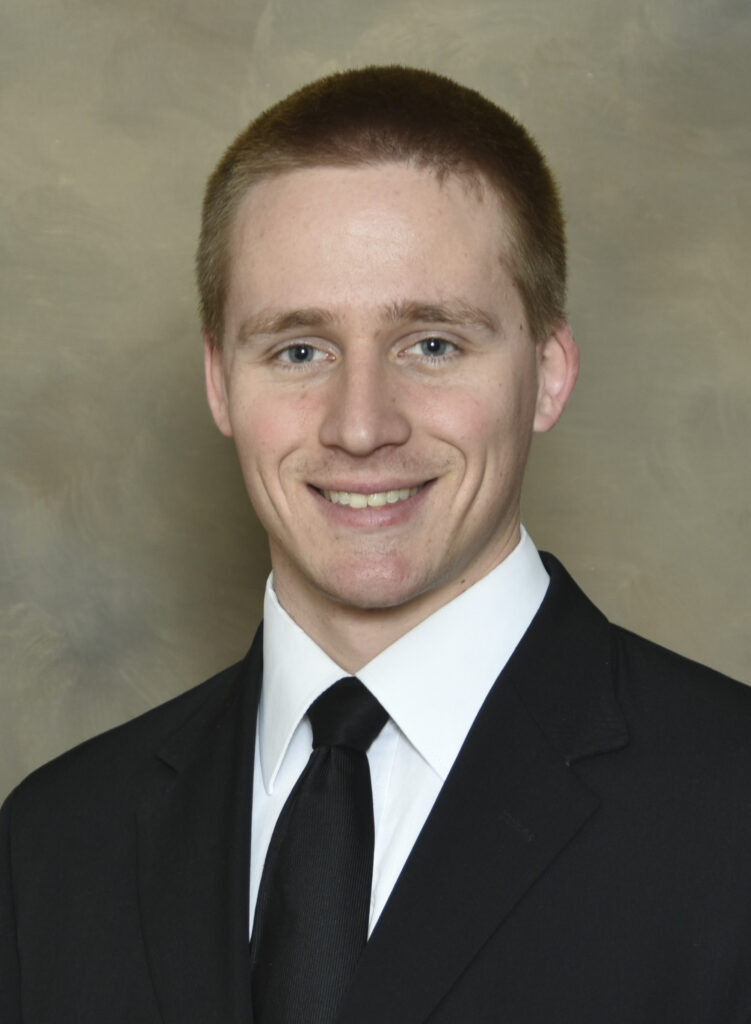Second place means different things to different people. Someone might see second place as a failure because it is not first, while someone else might get second place and give thanks for how well they performed. Pride tempts us to focus on beating everyone else, while humility looks to do what is best for others.
Shiphrah and Puah were focused on doing what was best for others. God’s Word has preserved the names of these two women who lived about 3,600 years ago for their humble service. They lived 80 years before God delivered the Israelites from their slavery in Egypt, but without them, the “Exodus” would have looked very different. In Exodus 1, we read, 15 The king of Egypt said to the Hebrew midwives, whose names were Shiphrah and Puah, 16 “When you are helping the Hebrew women during childbirth on the delivery stool, if you see that the baby is a boy, kill him; but if it is a girl, let her live.” 17 The midwives, however, feared God and did not do what the king of Egypt had told them to do; they let the boys live.
Shiphrah and Puah were Israelite women who were threatened by Pharoah to commit genocide against their people. Pharaoh feared the Israelites becoming too populous and posing a threat to his kingdom, but these women feared the Lord and let the boys live. When Pharaoh saw no decline in the population, he questioned the women, but they claimed that the Hebrew women gave birth before they arrived to help. God saw their lies as wisdom, and they were rewarded for their loving service to the Lord and his people. Shiphrah and Puah lived out what we heard in our New Testament reading from James 3, 13 Who is wise and understanding among you? Let them show it by their good life, by deeds done in the humility that comes from wisdom. In life, Shiphrah and Puah were good, wise and humble, and a little girl from their time named Miriam followed in their steps.
Miriam looked after her little brother who was born during the time when Pharaoh was having Israelite boys like him killed. Her parents hid him for a few months, after which they put him in a papyrus basket on the Nile. Then, we get the first mention of Miriam in the Bible in Exodus 2, 4 His sister stood at a distance to see what would happen to him. As she watched, Pharaoh’s daughter came to bathe in the Nile, noticed the basket, had it brought to her and opened it. And we hear Miriam’s wisdom in Exodus 2, 7 Then his sister asked Pharaoh’s daughter, “Shall I go and get one of the Hebrew women to nurse the baby for you?” 8 “Yes, go,” she answered. So the girl went and got the baby’s mother. 9 Pharaoh’s daughter said to her, “Take this baby and nurse him for me, and I will pay you.” So the woman took the baby and nursed him. 10 When the child grew older, she took him to Pharaoh’s daughter and he became her son. She named him Moses, saying, “I drew him out of the water.”
Miriam acted wisely getting her little brother back into the arms of his mom for a little longer, and with payment. Also, her humble service played a key role in preserving the life of Moses through whom God worked 80 years later to deliver the entire nation of Israelite, many of which owed their lives to Shiphrah and Puah, from their slavery in Egypt.
Two years after God delivered Israel, Miriam was tempted. After the Israelites walked through the Red Sea on dry ground, while Pharoah’s army drowned, we hear Miriam praise the Lord in Exodus 15, 20 Then Miriam the prophet, Aaron’s sister, took a timbrel in her hand, and all the women followed her, with timbrels and dancing. 21 Miriam sang to them: “Sing to the Lord, for he is highly exalted. Both horse and driver he has hurled into the sea.” The Lord allowed Miriam to serve as a prophet, sharing the Word of God. This was a great honor, but with that honor came temptation much like James spoke of in our New Testament reading after he had spoken about humility and wisdom as we read in James 3, 14 But if you harbor bitter envy and selfish ambition in your hearts, do not boast about it or deny the truth. 15 Such “wisdom” does not come down from heaven but is earthly, unspiritual, demonic.
Two years after Miriam sang praises to God, bitter envy and selfish ambition flared up in her as we read in our Old Testament reading from Numbers 12, 1 Miriam and Aaron began to talk against Moses because of his Cushite wife, for he had married a Cushite. 2 “Has the Lord spoken only through Moses?” they asked. “Hasn’t he also spoken through us?” And the Lord heard this. Miriam opened her mouth first beginning the talk against her brother. In her pride and jealously, she lashed out against Moses in a racist accusation against his wife, and their brother Aaron joined in with her. God had honored her as a prophetess and Aaron as the first high priest, but now they challenged Moses’ first place position, which was a challenge against God who appointed him.
God chose how the siblings would serve him. The three places of service God gave to Moses, Miriam and Aaron were meant to serve God’s plan, not their plans. Left on their own, this family would have blended into the forgotten past, but God used them all for his plan to save the world through Jesus. This is why we find God immediately call the siblings together as we read in Numbers 12, 4 At once the Lord said to Moses, Aaron and Miriam, “Come out to the tent of meeting, all three of you.” So the three of them went out. 5 Then the Lord came down in a pillar of cloud; he stood at the entrance to the tent and summoned Aaron and Miriam. When the two of them stepped forward, 6 he said, “Listen to my words: “When there is a prophet among you, I, the Lord, reveal myself to them in visions, I speak to them in dreams. 7 But this is not true of my servant Moses; he is faithful in all my house. 8 With him I speak face to face, clearly and not in riddles; he sees the form of the Lord. Why then were you not afraid to speak against my servant Moses?” 9 The anger of the Lord burned against them, and he left them.
God made it clear to Miriam and Aaron that their sin was ultimately against God. The unique role Moses played was to be honored as God clearly communicated to him alone his will for his people. The punishment for Miriam’s “earthly, unspiritual, demonic” behavior to quote James 3, was then revealed in Numbers 12, 10 When the cloud lifted from above the tent, Miriam’s skin was leprous—it became as white as snow. Aaron turned toward her and saw that she had a defiling skin disease, 11 and he said to Moses, “Please, my lord, I ask you not to hold against us the sin we have so foolishly committed. 12 Do not let her be like a stillborn infant coming from its mother’s womb with its flesh half eaten away.”
A couple of years earlier, Aaron had made excuses when Moses confronted him about sinfully making the golden calf idol, claiming that it had spontaneously formed when he put the people’s gold into the fire. This time, Aaron was quick to repent of his sin rather than offer excuses. And Moses did not hold it against them acting as a selfish judge, but acted according to God’s gracious will as we read, 13 So Moses cried out to the Lord, “Please, God, heal her!” 14 The Lord replied to Moses, “If her father had spit in her face, would she not have been in disgrace for seven days? Confine her outside the camp for seven days; after that she can be brought back.” 15 So Miriam was confined outside the camp for seven days, and the people did not move on till she was brought back. God graciously answered Moses prayer on behalf of his sister and Miriam was healed. And God directed Israel not to break camp and move on leaving Miriam alone, but the whole camp was to stay in place until Miriam could be brought back appreciative of her brother and humbled by the Lord who healed and forgave her.
Second place is as unsatisfying to us as it was for Miriam. Like Miriam our inner desire for self-promotion whispers, speaks, even shouts at times. Miriam spoke against the one whom God put in her life to speak the Word of God to her. We show our desire to push God out of the way when we do not listen to those whom he has put in our lives to speak the Word of God to us. We do this when pastors prepare Bible studies and sermons, but we prioritize other things over them or ignore applying the law and gospel they speak to ourselves. We do this when we ignore our spouse speaking the Word of God to us. We do this when we deny teaching children the Word of God and how to pray at home, in the car, before school, before sports and in church, and instead effectively teach them not to see God’s hand in providing for us and Jesus’ forgiveness by not talking about these things. God’s anger burns against us when we do these things.
God’s anger burned especially hot against one of the Hebrew boys. God worked through the family of Moses, Miriam and Aaron to preserve the Hebrew people. About 1,500 years after God delivered them from their slavery in Egypt, Jesus, a Hebrew or Israelite, taught his disciples what he would do to deliver the world in our Gospel reading from Mark 9, 31 … “The Son of Man is going to be delivered into the hands of men. They will kill him, and after three days he will rise.”
Soon after this, Jesus humbly allowed himself to be delivered into the hands of men who were “earthly, unspiritual, demonic” to quote James 3, who did not want Jesus to be in first place in the eyes and hearts of the people. Jesus humbled himself to be condemned to death as an innocent man and hung on the cross where his Father in heaven abandoned treating him like his beloved Son, treating him instead as the sin of the world. In this way, Jesus also fulfilled for his disciples what he taught them in Mark 9, 35 … “Anyone who wants to be first must be the very last, and the servant of all.” Jesus chose to be the first and only one in line to die for the sins of the world to serve and save you.
God puts us in second place because he loves us. When we are filled with pride, God humbles us to stop comparing ourselves to others. As with Miriam, we have moments of wisdom and humility, and moments of self-promotion and talking against our leaders. God humbles us to turn us back to see what he has made us in Christ. You get to sing God’s praise as one who has passed through the waters of baptism, washed clean of all your sins. You have Jesus standing in heaven asking God to heal you, so you are healed and forgiven.
Second place means different things to different people. Someone might see second place as a failure because it is not first, while someone else might get second place and give thanks for how well they performed. Pride tempts us to focus on beating everyone else, while humility looks to do what is best for others. God has given each of us a different role to play in his kingdom, but we are all equally valuable to him. When God looks at us, he sees Jesus, so he sees all of us as the best, the first. So that we are not separated from him the Lord humbles his people. Amen.
Gunnar Ledermann, Pastor Divine Peace Church

Gunnar Ledermann
I’m passionate about Rockwall’s vibrant community and actively engage with local non-profits and community organizations, including the Rockwall Chamber of Commerce, the City of Rockwall, and the Downtown Rockwall Association. My background includes a bachelor’s degree in Classical Languages and a master’s degree in divinity. Currently serving as a pastor at Divine Peace Church in Rockwall, I also enjoy spending time with my wife, Marinda, and our three children.




































